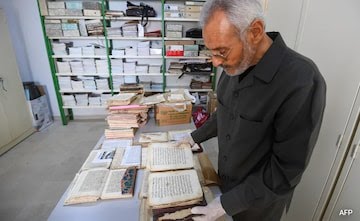8 June 2024: In the Tunisian island of Djerba, 74-year-old librarian Said al-Barouni is dedicated to preserving his community’s rich, albeit little-known, Ibadi Muslim heritage. Using modern technology, including artificial intelligence, al-Barouni aims to save ancient religious manuscripts from deterioration.
Al-Barouni, a member of the Ibadi sect, has overseen his family’s library since the 1960s. The library houses over 1,600 texts, including works on astrology and medicine, dating back to 1357. The librarian’s mission is to collect scattered manuscripts, which families kept secret for centuries to avoid persecution.
Ibadi Muslims, often labeled heretics, faced historical threats from both Sunni and Shia rulers. Many Ibadis found refuge in isolated regions, including Djerba. The island, now a UNESCO World Heritage Site, also hosts Christian and Jewish communities.
To combat the effects of Djerba’s humidity on the manuscripts, the library uses climate-controlled rooms and ozone generators. Additionally, al-Barouni employs Zinki, an AI software developed by Feras Ben Abid, to digitize and simplify the ancient texts, making them accessible to modern readers.
Ibadi manuscripts reflect a tradition of democratic governance within the community, overseen by a council of elders. This system thrived until Tunisia became a French protectorate. Today, Djerba remains a cultural mosaic, with Ibadis making up two-thirds of its population.
Al-Barouni’s work underscores the importance of preserving historical texts, not just for their religious significance, but for their cultural and historical value as well.




